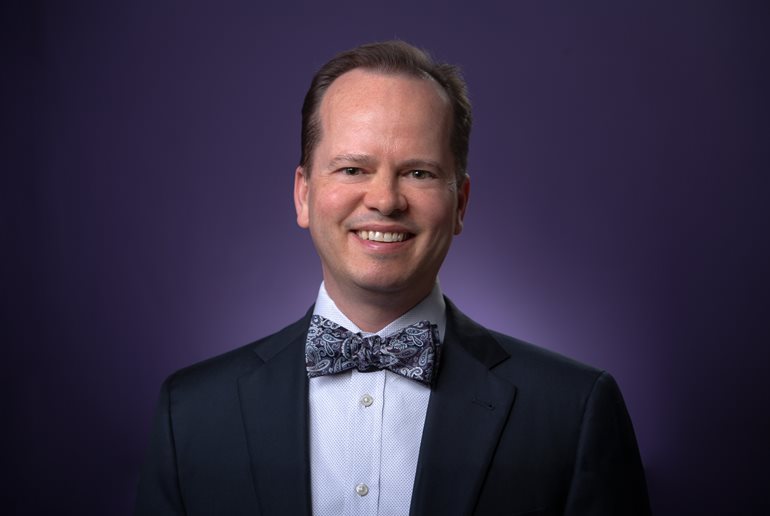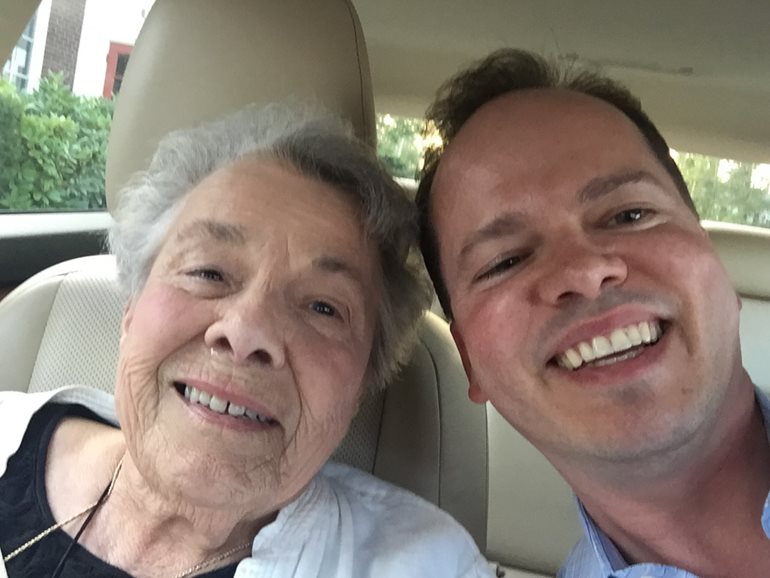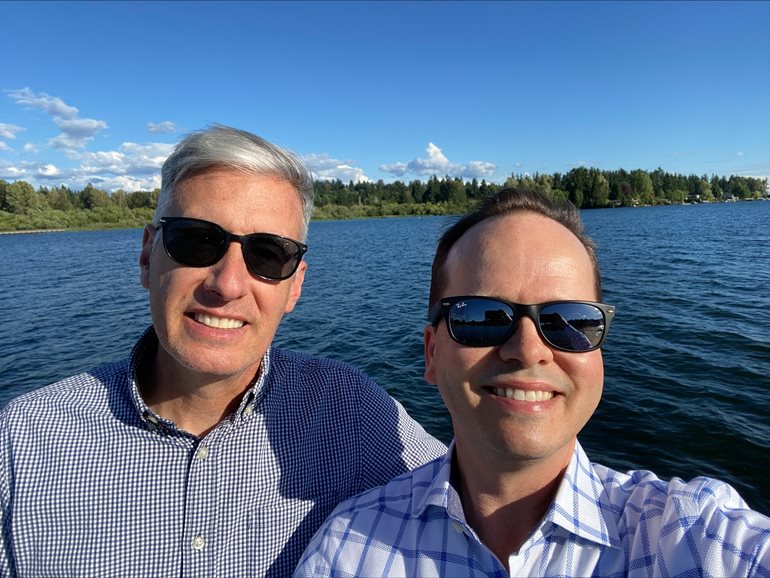By Scott James

I am a military “brat.” I am a first-generation college student. I am an openly gay man. I am a university administrator. These are just a few of my identities, all of which have shaped me into the individual I am today.
I was born in Falmouth, Massachusetts, a resort town on Cape Cod. My great-grandparents emigrated there from Portugal in the early 20th century. Much of my extended family on my mother’s side still lives there, down to cousins once removed. As the oldest grandchild (on both sides of my family), I was showered with love and attention from the extended family that lived nearby. I had a particularly close relationship with my grandmother, Ducilia Carvalho Newton, who unfortunately passed away last year, one of the many victims of COVID-19. From her I inherited a love of travel, a sense of humor and an infectious laugh.

When I was 3 years old, my father joined the U.S. Air Force, and we began a series of rapid succession moves across the country and around the world. Between the time my father joined the military and the time I graduated from high school, we had lived in Mississippi, North Dakota, South Carolina, South Korea, Michigan, Germany (West Germany at the time), Arkansas and England. For most of the time that I was a military dependent, I remember resenting not having a “normal” life, a stable set of friends, a place to call “home.”
In hindsight, I recognize that my experience was remarkable in many ways. Having the opportunity to live abroad allowed me to experience things that most people only read about in history books. It also gave me the experience of being “the other.” It gave me a network of friends around the world, many of whom I’m still in touch with (thank you, social media!). And I think it also developed in me an understanding of our unique position in the world and why it’s important for us, as Americans, to share our wealth, our knowledge, our skills and our experience with others who are not so fortunate.
When I began my college search process, in my junior year of high school, I didn’t have a clue where to begin. Luckily, the U.S. Department of Defense school outside of London, where I was a student at the time, had two full-time guidance counselors for a total student body of 400 in grades 7-12. Ms. McCready was so helpful, encouraging and more excited than I was when I was admitted to Boston University with a very generous financial aid package. All I knew about Boston University was what I saw in its viewbook and academic catalog. I pictured a walled campus, with grand gates and rolling green hills. Of course, Boston University is nothing like that. Stretched out along Commonwealth Avenue in Boston, it is the picture-perfect example of an urban campus, blending seamlessly with the city it inhabits. I overcame my initial disappointment and quickly learned to love studying in the city and called Boston my home for 25 years.
I didn’t know that I was a “first-generation” college student. That label hadn’t really been created yet. But I did know that I was from a much less affluent family than most of my peers and that I couldn’t rely on my family to help me navigate some of the confusing processes that came with being a college student. I was incredibly lucky to land a work-study job in the Office of the University Chaplain, where I found a wonderful community within the larger university. More importantly, I also found supervisors who cared about me and my success as a student and who helped connect me to resources when I needed them — resources I often didn’t even know existed. I’m not sure I would have made it through and graduated without that support.
In my graduate programs, I did coursework on the social context of education. It was the first time I learned how fortunate I was to have grown up in a military family. I had many of the markers of a student who would likely not earn a college degree: low income, transient and parents who hadn’t gone to college. In non-military settings, those things would likely have kept me from even going to college. Military culture, however, places a very high value on education and training, on discipline and on supporting one another during transitions from one military assignment to the next. All of those things helped me to beat the odds and succeed, despite the statistical models that would have predicted my failure.

In college, I chose to live on an “arts” floor in my first-year residence hall. I was on the first of three floors of students who were majoring in or (like me) had an interest in the arts. In addition to the community I found in the Office of the University Chaplain, I found more community there — with people who had at least some of the same interests I did. It was in this community that I found the courage and support to come out as a gay man. Gay culture wasn’t as mainstream back in the early ’90s, so I was incredibly fortunate to have found people to support me through the coming-out process. I’m extra fortunate to have a family that has been incredibly supportive and fully embraces me and my husband, Donald.
Another benefit of my close relationship with my supervisors at my work-study job was that my eyes were opened up to the whole world of higher education administration. I certainly didn’t go to college thinking I wanted to be a university administrator, and I’m not sure that I really wanted to do that work when I was first applying for positions in my senior year. I do believe, however, that when a friend called me to say that she had an opening in her university office I was interested because I knew what the work actually entailed.
The rest, as they say, is history. My entire professional career has been in higher education administration, and both my masters and doctoral degrees are in the field. I love the positive impact that administrators can have on institutions, supporting the academic mission of the organization and ensuring that students have all of the supports they need to be successful. There is nothing more gratifying about my work than attending commencement, seeing and hearing families and friends loudly cheering as their students cross the stage — often as the first in their family to graduate from college. I know what that feels like because I was one of those students, too.
So, I guess if I had to sum up the lessons of my story they would be:
- don’t underestimate the value of your past lived experience;
- wherever you find yourself, find your tribe;
- be authentic; and
- be open to a future you can’t even imagine right now.
Scott James serves as vice chancellor for Enrollment Management & Student Affairs at UW Bothell, where he oversees student service functions. He has worked in higher education administrative roles for 27 years. Scott and his husband are new transplants to the Seattle area.



